#Li Xueqin
Text
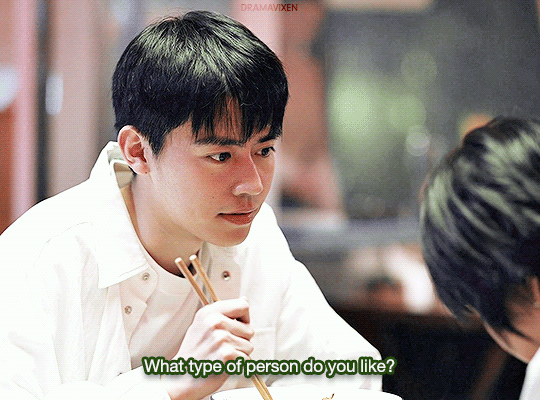
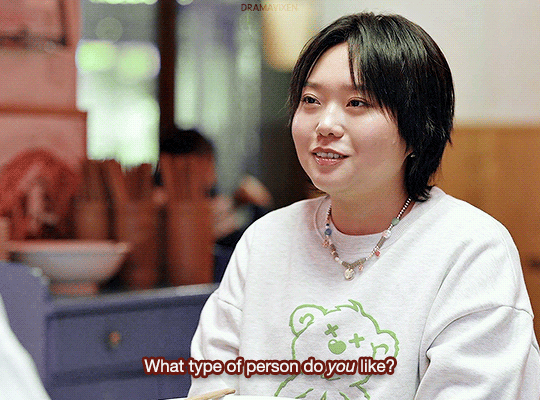



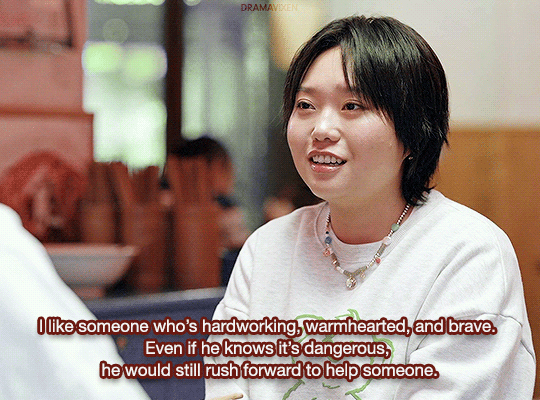


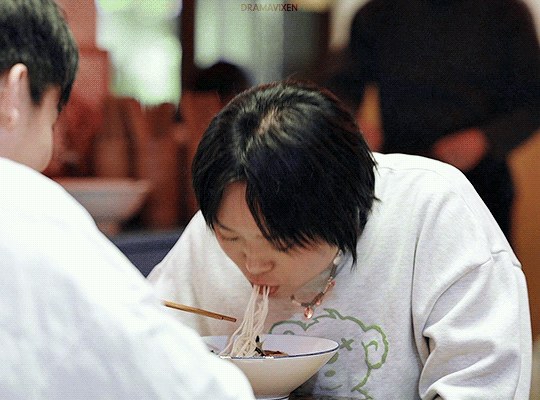




I think we're talking about two really great people.
But aren't people like that everywhere?
If you think people like that are everywhere, that just means you're that type of person.
(There Will Be Ample Time – China, 2023)
#there will be ample time#故乡别来无恙#gif*#userdramas#just two cuties#giving minimal drama in a drama heh#li xueqin#zeng kelang
40 notes
·
View notes
Photo
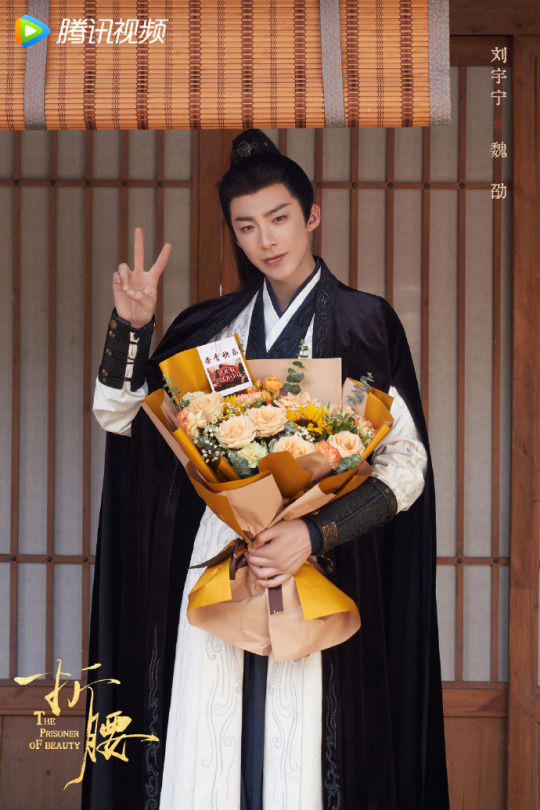
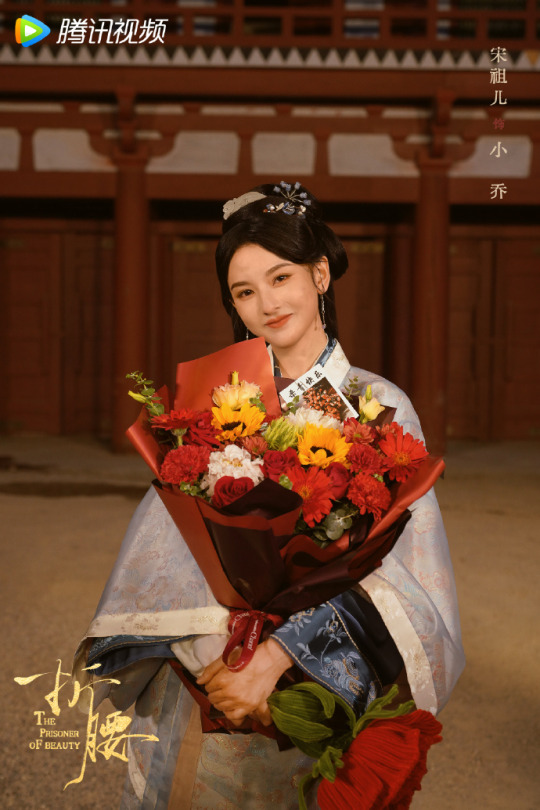
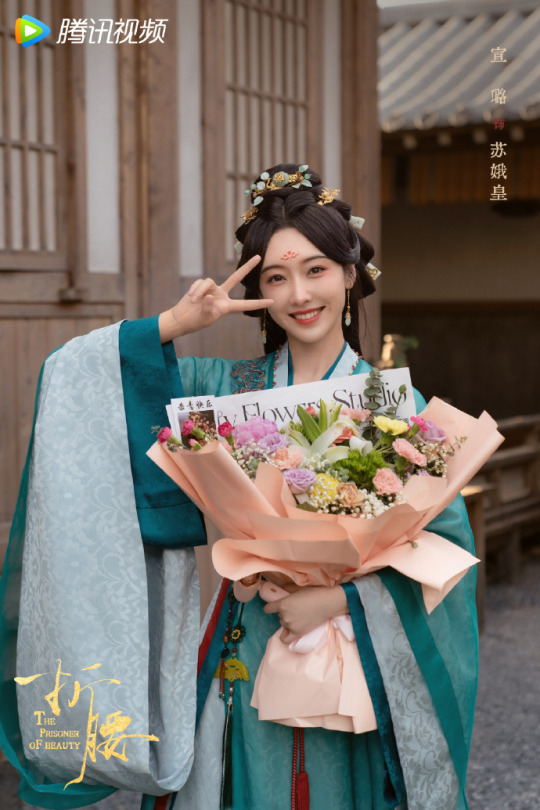
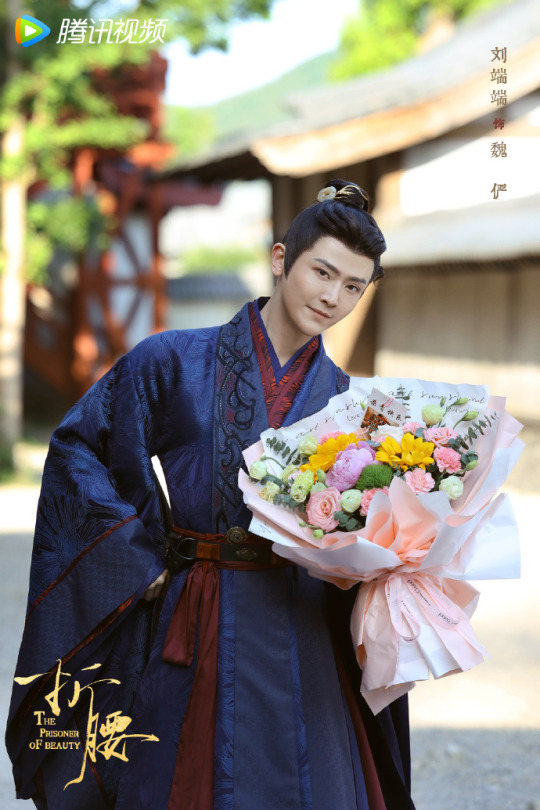
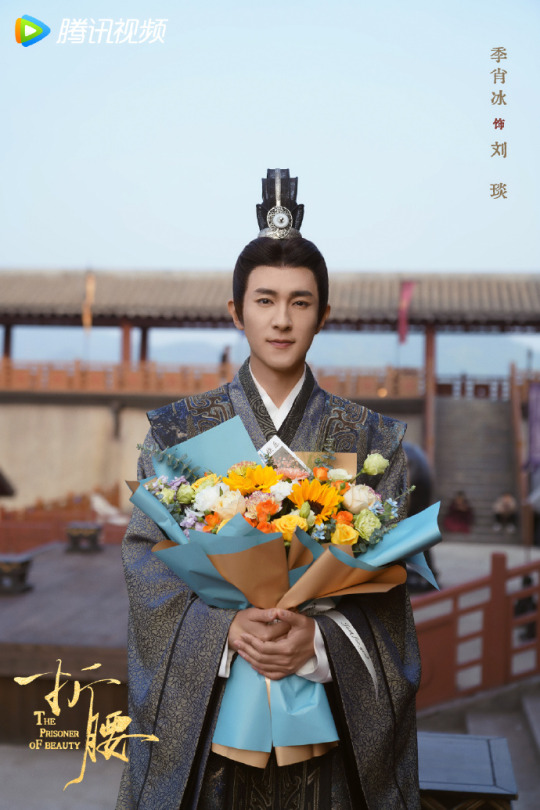
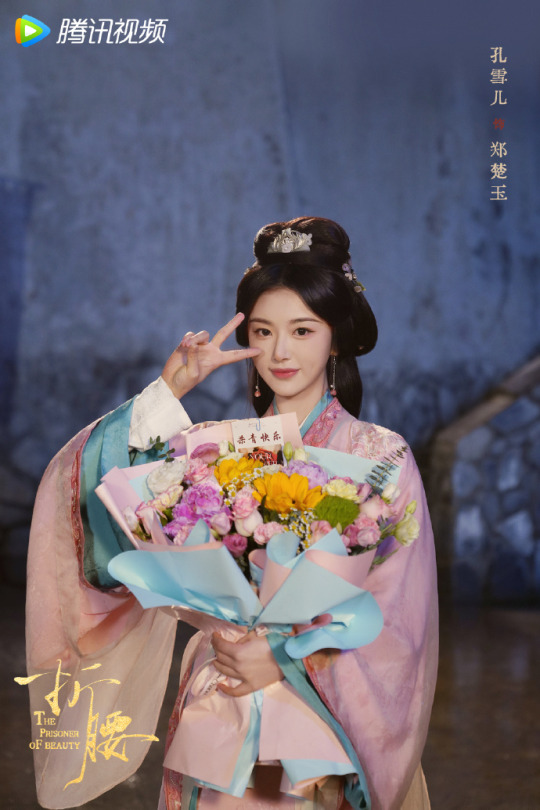
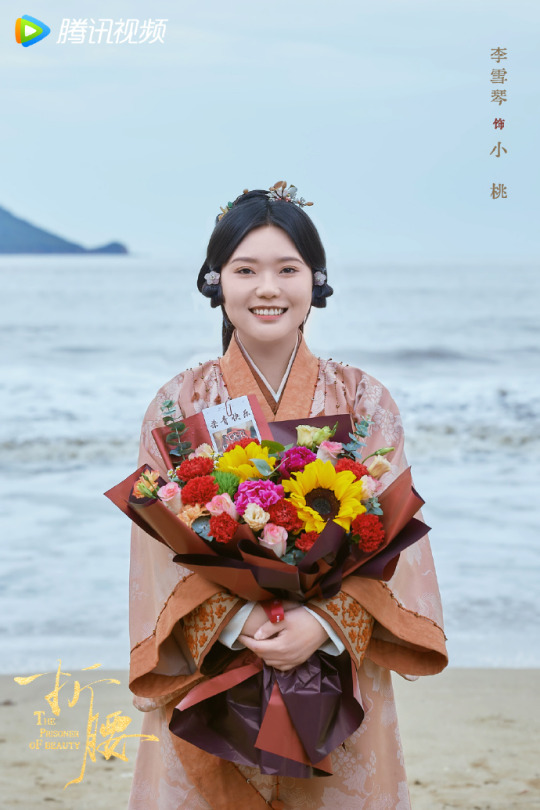
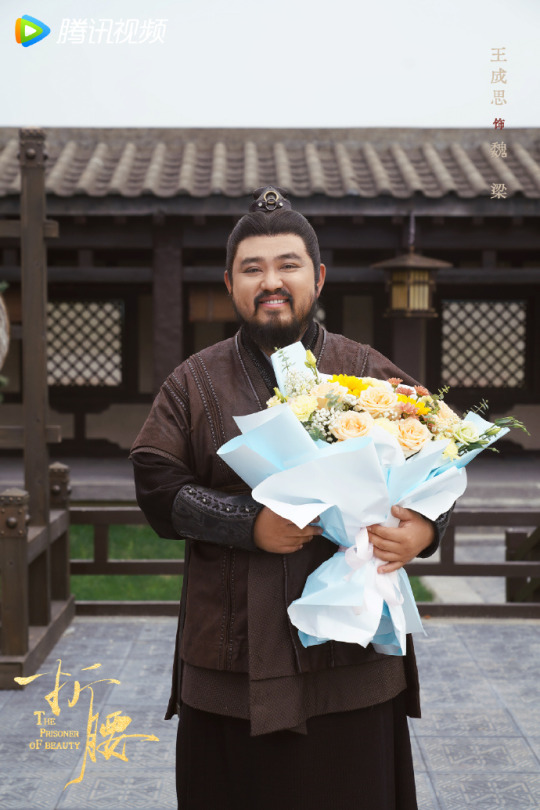
折腰 | The Prisoner of Beauty - Filming wrap!
#折腰#The Prisoner of Beauty#p: weibo#Liu Yuning#Song Zu'er#Xuan Lu#Liu DuanDuan#Ji Xiaobing#Kong Xue'er#Li Xueqin#Wang Chengsi
31 notes
·
View notes
Text







Walking towards the end alone
Accidentally returning to the start
A new world
Only now did I realise
Time is not absolute
Lu Han - Our Tomorrow [Back to 20 (2015) OST]
毛雪汪 Mao Xue Wang 20220822
#luhan#lu han#鹿晗#chineseartistsinc#chinesemedia#mao xue wang#mao xue woof#mao buyi#li xueqin#caps#ep28#毛雪汪#i dont know where to begin with this i got a little teary and nostalgic hearing him sing this song#he looks like he havent aged a day its been 10 years not to be sappy but i do miss the beginning of it all#the first person i followed on weibo was luhan and i started my main blog for exo too#i remember when this song came out fans heavily tied it as an epilogue after leaving exo and looking back it was all a beautiful dream#cheers to the 10 years and the many more 10 years coming 🥂🥂
58 notes
·
View notes
Video
youtube
Another new trailer of "Deep Sea" CG animated feature film by Tian Xiaopeng (Monkey King: Hero Is Back). Coming in chinese theaters on January 22 (and also in IMAX).

#china#movies#animation#donghua#li xueqin said she has watched it in advance screening and she cried her eyes out
159 notes
·
View notes
Text
Zhang yuqi AND qi wei in an all women murder mystery show??? They literally made this for lesbians and milf lovers and me
0 notes
Text
FUCK. LIU YUNING GUEST STAR ON 毛雪汪. YOOOOOOOOO
#ive been waiting for this for like a YEAR holy shit#for context 毛雪汪 is a variety show by tencent thats like#the premise is super simple its just mao buyi snd li xueqin invite their friends to a cozy little appartment for dinner and a little chat#its honestly just really good wholesome content like you get to hear celerbrities n shit talk about their lives#like regular old friends sitting around shittalking#cuz mby and lxq both debuted from talent shows so they still have some of that like ‘just a normal guy who happens to be famous’ energy#but yeah i always thought that the 毛雪汪 format would suit lyn super well i just wasnt sure if he knew either of the hosts#but lxq is on the cast of prisoner of love and she invited him on the show!#fuck yeah!!!#(also i love the implication that lxq just goes around on sets of like shows shes in just asking any new people she meets#if they want to be on her show)#cuz 毛雪汪 is really….. cheap so the implication is that they only invite their irl friends because other people are too expensive HCJDHFJSHF#LIKE there was an episode where lxq was saying she likes bai yu a lot but when she asked their producer if they can get bai yu on 毛雪汪#she was like ‘well we can see if theres time but really your show is just poor’#btw if you watched the truth. yknow how ju taitai had a massive unexplained crush on bai sanwan? this is why
0 notes
Text
After finishing the recently released sample of The Running Grave, I couldn't help but wonder how the rest of the book will unfold (which I guess is the point).
(Spoilers under the cut)
The 2 deaths by drowning we're told about in the prologue intrigued me, so I decided to do a little research about drowning in Chinese culture and found some interesting tidbits.
There are folktales about drowned people becoming ghosts or spirits:
According to legend, Nüwa, a girl who drowned in the Eastern sea was turned into a bird called Jingwei after her death. To prevent others from meeting the same fate, she drops twigs and stones from the nearby mountains to fill up the sea.
Jennifer and Daiyu Wace both drowned on the sea off Cromer beach, which lies on the East Coast of England.
More chilling are the stories about shui gui (literally "water ghost"), drowned people who haunt the waters they died in and lure people to their deaths.
Folklore also claims that ghosts are particularly active during Ghost Month, the 7th month of the lunar Chinese calendar. During this month, it's recommended (among other things) not to swim. I checked - Daiyu Wace's death (on the 29th of July 1995) happened during Ghost Month.
I find it hard to believe this is a coincidence.
The names which Galbraith/Rowling chose for the Wace females are also quite interesting:
Mazu ("ancestor mother") is apparently the name of an East Asian goddess, particularly popular in Taiwan. It is said that, during her moral life, she saved part of her family from death at sea. Her father and brothers were fishermen and would have all died if not for her intervention. Having fallen into a trance while she was weaving at home, she was in the process of rescuing them when she was snapped out of her trance and dropped her oldest brother into the sea.
Jennifer is a Cornish form of the Welsh name Gwenhwyfar, which literally means "white phantom". Gwenhwyfar (better known nowadays as Guinevere) is also Arthur's wife in Arthurian legend. In the retelling by Chrétien de Troyes, she has an affair with Lancelot of the Lake. By the by, the first account of Arthur's life in Norman was written by a poet named Wace.
Daiyu ("black jade") is also a famous figure, namely in Chinese literature. A flower reincarnated as a girl to repay a debt of tears, Lin Daiyu is one of the main female protagonists of Dream of The Red Chamber (or The Story of the Stone), a Chinese literary classic which, according to most scholars, was never finished by its original author, Cao Xueqin. He is considered to have only written 80 of the 120 chapters of the first published edition. One of the plot lines involves a love triangle between Lin Daiyu, Jia Baoyu (the main character, "precious jade") and Xue Baochai ("jeweled hair pin"). In the 120-chapter version, Lin Daiyu, who was chronically ill, dies an early death at the time of Jia Baoyu and Xue Baochai's marriage. Jia Baoyu ends up becoming a monk. In 2016, the year in which The Running Grave takes place, an English-language opera adaptation of Dream of The Red Chamber came out. In this version, Lin Daiyu instead commits suicide by walking into a lake after the wedding.
Not sure if we're supposed to look further into it… But if we are, this could be hinting that:
Jennifer's ghost is responsible for Daiyu's death (oh wait, it's not this kind of story)
Mazu is like a "mother" to the members of the cult. (Considering that Jonathan Wace is known to members as "Papa J" I could see that being the case)
Before Jennifer's death, she, Mazu and Jonathan had a love triangle of their own?
5 notes
·
View notes
Text
Hang on zb1 ricky is saying he met xiaojun when they both auditioned for 明日之子 in 2017 aka the season mao buyi won aka the first and most famous season of that survival show. Extrapolating from that Do u think xiaojun and mao buyi have met. Do u think they have spoken. Do u think wayv can go on the little talk show he does with li xueqin. Pls
#im the definition of give an inch and take a mile. in fact there is not even an inch i am making a mile out of nothing#wayv#sidney talks shit
1 note
·
View note
Text
Week 3 Weekly Record
As I closed the final pages of "Dream of Red Mansions," a profound sense of melancholy washed over me, mingled with a bittersweet longing for the ephemeral splendor that had unfolded within its pages. The haunting beauty of Cao Xueqin's masterpiece had left an indelible imprint on my soul, stirring emotions I struggled to articulate.
In the wake of the novel's conclusion, I found myself lost in a labyrinth of conflicting emotions—awe at the richness of its storytelling, sadness at the tragedies that befell its characters, and a sense of nostalgia for the bygone era of imperial China. The tale of the Jia family, with its intricate web of love, betrayal, and longing, had unfolded like a vivid dream, leaving me spellbound and haunted by its lingering echoes.
As I reflected on the themes of the book, I began to see reflections of my own life mirrored in its pages—the fleeting nature of happiness, the inevitability of loss, and the relentless passage of time. Like the characters in "Dream of Red Mansions," I grappled with the complexities of human relationships, the yearning for connection, and the elusive pursuit of meaning amidst the transience of existence.
In the quiet moments of introspection, I found solace in the beauty of the novel's prose, the richness of its imagery, and the depth of its philosophical musings. I wandered through the gardens of the Jia family estate, lingered in the halls of the Rong Mansion, and pondered the enigmatic beauty of Daiyu's tears, which seemed to encapsulate the ephemeral nature of human desire and longing.
But as the echoes of "Dream of Red Mansions" lingered in my mind, I came to realize that true beauty lies not in the grandeur of wealth and power, but in the simplicity of love, compassion, and human connection. Inspired by the resilience of the novel's characters, I sought to cherish the relationships that enrich my life, to treasure each moment of joy and sorrow, and to embrace the impermanence of existence with grace and acceptance.
And so, as I bid farewell to the world of "Dream of Red Mansions," I carry with me the echoes of its ephemeral splendor—the laughter and tears, the triumphs and tragedies, the timeless wisdom of its storytelling. Though the novel may end, its echoes reverberate in the chambers of my heart, a testament to the enduring power of literature to illuminate the human condition and awaken the soul to the beauty of life's fleeting moments.
0 notes
Text
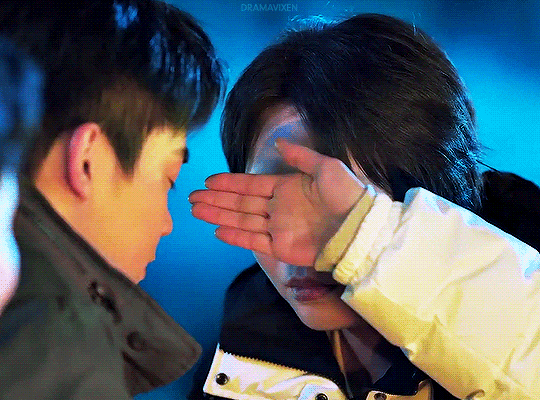
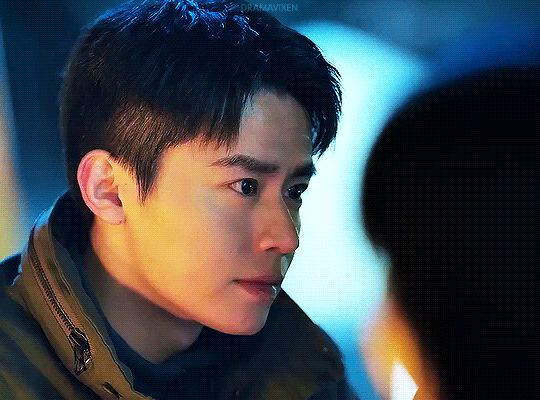



In three seconds, choose someone of the opposite gender who you think is pretty decent. If both of you chose each other, then you interlock fingers and make eye contact for ten seconds. Whoever laughs has to drink!
(There Will Be Ample Time – China, 2023)
#there will be ample time#故乡别来无恙#gif*#li xueqin#zeng kelang#userdramas#reminds me of the bts where he practices his affectionate stare on her and says “can you also look at me affectionately for once”#and she straight up is like “nah you got it bro” as;dkfjhzx;cvkhjasdf#i agree though dude has enough intense gazes for the both of them
11 notes
·
View notes
Photo

Li Xueqin
#li xueqin#silver leather gloves#leather gloves#gloves#metallic leather gloves#asian beauty#asian#fashion
10 notes
·
View notes
Text


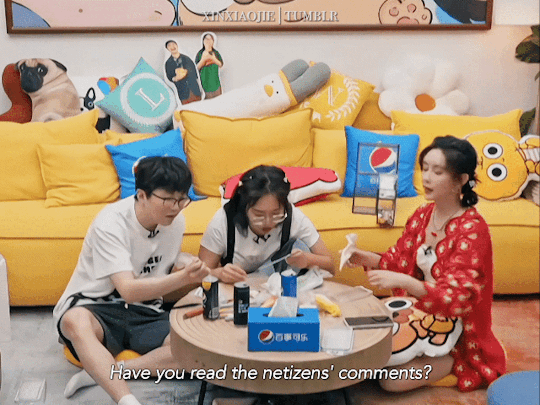

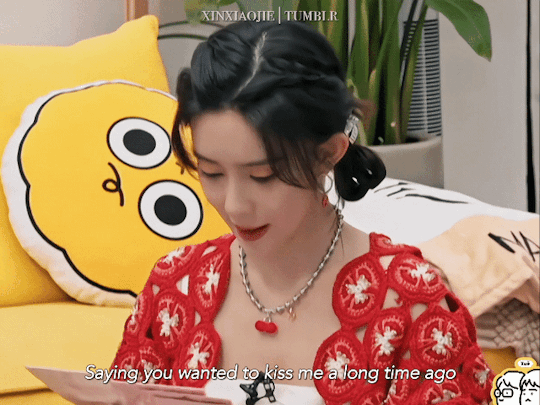

Meng Ziyi (ENFP) & Li Xueqin (INFP)
The kiss in Wonderland S2:




#meng ziyi#li xueqin#mao xue wang#chineseartistsinc#chinesemedia#mao xue woof#mao buyi#caps#ep29#20221010#毛雪汪#your honour they are gay i dont make the rules 🌈#they are so sweet in this ep 🥺🥺🥺 the way they interact you can tell they are really good friends#i knew lxq was infp from prev eps but while watching this i was like mzy is def enfp and i checked her weibo i was right~!!#(mao buyi is isfp all the FPs in this eps#i feel like lxq is quite reserved she wouldnt kiss mzy if she didn't like her (i know mzy have some bad rep on the web#in the extra cut mzy talks about how she can be herself around lxq and lxq says shes a very kind girl 😭😭 girls ❤❤❤❤#and they told a story how they held hands under the table at a party when people around them were drunk
50 notes
·
View notes
Note
I've been trying to read more non-european classic literature, do you have any texts you would recommend?
Not my main area of expertise, though I’m also trying to branch into more non-European literature, but here are some works I’ve read and enjoyed, and a few authors/works I want to read because I’ve heard good things about them.
Japanese:
Tanizaki Junichiro: In Praise Of Shadows - this one is absolutely gorgeous. I want to read more by Tanizaki because I love his writing style and I’ve heard his novels are good. I have In Black and White on my shelf to be read
Murasaki Shikibu: The Tale of Genji - this one I’ve only started reading, so I can’t say much about the work as a whole, but good so far
Endo Shusaku: Silence and The Samurai
Chinese:
Poetry. Li Bai (or Li Bo, or Li Po because Wade-Giles romanisation) and his friend Du Fu (or Tu Fu) are good places to start with Chinese classic poetry
Cao Xueqin: Dream of the Red Chamber - apologies to the anon who keeps sending asks about this one, I live in shame for not having read it yet and for not having answered your asks either
Kenyan:
Ngugi wa Thiong’o is one of the authors I’ve been meaning to read for a while, and I suppose some of his older works could be considered classics by now
This is just a very short list of a few good places to start, and honestly I think the best thing you can do is pick a specific country and try to dive into its history and the cultural context for the literature written there, because otherwise you’ll miss out on a lot of detail and beauty in what you read, in the same way that you won’t really understand The Count of Monte Cristo or Les Miserables or War and Peace if you have no knowledge of the French Revolution and Napoleon. Don’t treat reading non-European literature as a «diversity checklist», but rather as a way of understanding countries with a cultural history that’s very different from the cultural context in which you yourself were raised. And, you know, as a way of finding good stories to read.
Also, if you’re a non-European (or non-Anglophone American), feel free to promote your favourite literary classics from your own country in the notes.
233 notes
·
View notes
Text
A performance of 枉凝眉 (Vain Longing) from 红楼梦 ("A Dream of Red Mansions"/"Dream of the Red Chamber"/"Red Chamber Dream" by Cao Xueqin). This is a poem that appeared in the book and was adapted into a song in 1987, performed by 陈力 (Chen Li). She is the first performer in this video, while the second singer is 余少群 (Yu Shaoqun), who i primarily known as an actor.
The English lyrics that I have added to this video are from the Yang & Yang English translation of 红楼梦.
Original video
47 notes
·
View notes
Text
175+ non-Western literature recommendations to diversify your academia, organized by continent + country
I love world literature, and I’ve been frustrated by the lack of representation of it in literature + academia communities on tumblr, so here are some recommendations. I haven’t read all of these myself yet, but the ones I have are excellent and the ones I haven’t come highly recommended from Goodreads and are on my to-read list!
With the exception of anthologies of older works, all of these books were written before 2000 (some literally thousands of years earlier), since I’m less familiar with super contemporary literature. Also, I only included each writer once, though many of them have multiple amazing books. I’m sure there are plenty of incredible books I’m missing, so please feel free to add on to this list! And countries that aren’t included absolutely have a lot to offer as well--usually, it was just hard to find books available in English translation (which all of the ones below are.)
List below the cut (it’s my first post with a cut so let’s hope I do it right... and also warning that it’s super long)
ASIA:
Bangladesh:
Pather Panchali by Bibhutibhushan Bandyopadhyay (1929)
China:
Tao Te Ching by Lao Tzu (6th century BCE)
The Art of War by Sun Tzu (5th century BCE)
The Analects by Confucius (circa 5th-4th century BCE?)
The Book of Chuang Tzu by Zhuangzi (4th century BCE)
Mencius by Mencius (3rd century BCE)
The Songs of the South: An Anthology of Ancient Chinese Poems by Qu Yuan and Other Poets (2nd century AD)
Li Po and Tu Fu: Poems by Li Po and Tu Fu (written 8th century AD)
Poems of Wang Wei (8th century AD)
Romance of the Three Kingdoms by Luo Guanzhong (14th century AD)
Strange Tales from a Chinese Studio by Pu Songling (1740)
Dream of the Red Chamber by Xueqin Cao (1791)
Six Records of a Floating Life by Shen Fu (1809)
Diary of a Madman and Other Stories by Lu Xun (1918)
Mr Ma and Son by Lao She (1929)
Family by Ba Jin (1933)
Love in a Fallen City by Eileen Chang (1943)
A Source Book in Chinese Philosophy by Wing-Tsit Chan (1963)
Red Sorghum by Mo Yan (1987)
Soul Mountain by Gao Xingjian (1989)
The Big Red Book of Modern Chinese Literature edited by Yunte Huang (anthology, 2016)
India:
The Rig Vega (1500-1200 BCE)
The Mahabharata and the Bhagavad Gita (around 400 BCE but not known exactly. The Gita is part of the Mahabharata)
The Upanishads (REALLY wide date range)
The Dhammapada (3rd century BCE)
The Fundamental Wisdom of the Middle Way by Nāgārjuna (2nd century AD)
The Recognition of Sakuntala by Kālidāsa (4th century AD)
The Way of the Bodhisattva by Santideva (700 AD)
Gitanjali by Rabindranath Tagore (1910)
Annihilation of Caste by B.R. Ambedkar (1936)
The Discovery of India by Jawaharlal Nehru (1946)
Train to Pakistan by Khushwant Singh (1956)
A Source Book in Indian Philosophy by Sarvepalli Radhakrishnan and Charles Alexander Moore (1957)
Midnight's Children by Salman Rushdie (1981)
A Suitable Boy by Vikram Seth (1993)
Women Writing in India: 600 BC to the Present V: The Twentieth Century by Susie J. Tharu and K. Lalita (1993)
A Fine Balance by Rohinton Mistry (1995)
The God of Small Things by Arundhati Roy (1996)
Interpreter of Maladies by Jhumpa Lahiri (1999)
Indian Philosophy in English: From Renaissance to Independence (anthology, 2011)
Indonesia:
The Weaverbirds by Y.B. Mangunwijaya (1981)
Iran:
Shahnameh: The Persian Book of Kings by Abolqasem Ferdowsi (11th century AD)
The Essential Rumi by Rumi (13th century AD)
The Blind Owl by Sadegh Hedayat (1936)
Savushun by Simin Daneshvar (1969)
My Uncle Napoleon by Iran Pezeshkzad (1973)
Missing Soluch by Mahmoud Dowlatabadi (1979)
Iraq:
Fifteen Iraqi Poets edited by Dunya Mikhail (published 2013 but the poems are 20th century)
Japan:
The Ink Dark Moon: Love Poems by Ono no Komachi and Izumi Shikibu (9th-10th century AD)
The Pillow Book by Sei Shōnagon (1002 AD)
The Tale of Genji by Murasaki Shikibu (1008 AD)
The Tale of the Heike, unknown (12th century AD)
One Hundred Poets, One Poem Each: A Treasury of Classical Japanese Verse (not sure of year)
Essays in Idleness by Yoshida Kenkō (1332)
Kokoro by Natsume Sōseki (1914)
No Longer Human by Osamu Dazai (1948)
Snow Country by Yasunari Kawabata (1948)
The Makioka Sisters by Jun'ichirō Tanizaki (1948)
Confessions of a Mask by Yukio Mishima (1949)
Masks by Fumiko Enchi (1958)
The Woman in the Dunes by Kōbō Abe (1962)
A Personal Matter by Kenzaburō Ōe (1964)
Silence by Shūsaku Endō (1966)
Korea (written before the division into North/South):
The Memoirs of Lady Hyegyong (written 1795-1805)
Lebanon:
Samarkand by Amin Maalouf (1988)
Gate of the Sun by Elias Khoury (1998)
Pakistan:
We Sinful Women: Contemporary Urdu Feminist Poetry (1991)
The Rebel's Silhouette: Selected Poems by Faiz Ahmed Faiz (1991)
The Taste of Words: An Introduction to Urdu Poetry edited by Raza Mir (2014)
Palestine:
Men in the Sun and Other Palestinian Stories by Ghassan Kanafani (1963)
Orientalism by Edward Said (1978)
I Saw Ramallah by Mourid Barghouti (1997)
Mural by Mahmoud Darwish (2000, which technically breaks my rule by a year but it’s great)
Philippines:
Noli Me Tángere by José Rizal (1887)
Saudi Arabia:
Cities of Salt by Abdul Rahman Munif (1984)
Sri Lanka:
Funny Boy by Shyam Selvadurai (1994)
Syria:
Damascus Nights by Rafik Schami (1989)
Taiwan:
Last Words from Montmartre by Qiu Miaojin (1996)
Turkey:
My Name Is Red by Orhan Pamuk (1998)
Vietnam:
Spring Essence: The Poetry of Hô Xuân Huong by Hô Xuân Huong (1801)
The Tale of Kieu by Nguyen Du (1820)
Paradise of the Blind by Duong Thu Huong (1988)
Miscellaneous Asia (country unclear or multiple current day countries):
The Epic of Gilgamesh (circa 1800 BCE)
Myths from Mesopotamia translated by Stephanie Dailey
The Arabian Nights (as early as the 9th century AD, lots of changes over the years)
The Qur’an
AFRICA:
Algeria:
Fantasia: An Algerian Cavalcade by Assia Djebar (1985)
The Bridges of Constantine by Ahlam Mosteghanemi (1993)
Cameroon:
Houseboy by Ferdinand Oyono (1956)
Egypt:
The Tale of Sinuhe and Other Ancient Egyptian Poems 1940 - 1640 B.C. translated by R.B. Parkinson
Palace Walk by Naguib Mahfouz (1956)
The Sinners by Yusuf Idris (1959)
Woman at Point Zero by Nawal El Saadawi (1975)
The Map of Love by Ahdaf Soueif (1999)
Ghana:
Our Sister Killjoy by Ama Ata Aidoo (1977)
Two Thousand Seasons by Ayi Kwei Armah (1979)
In My Father’s House: Africa in the Philosophy of Culture by Kwame Anthony Appiah (1992)
Guinea:
The Radiance of the King by Camara Laye (1954)
Kenya:
A Grain of Wheat by Ngugi wa Thing'o (1994)
The River and the Source by Margaret A. Ogola (1995)
Libya:
The Bleeding of the Stone by Ibrahim al-Koni (1990)
Mali:
The Fortunes of Wangrin by Amadou Hampâté Bâ (1973)
Nigeria:
The Palm-Wine Drinkard by Amos Tutuola (1952)
Things Fall Apart by Chinua Achebe (1958)
Efuru by Flora Nwapa (1966)
The Joys of Motherhood by Buchi Emecheta (1979)
Aké: The Years of Childhood by Wole Soyinka (1981)
Sozaboy: A Novel in Rotten English by Ken Saro-Wiwa (1985)
The Famished Road by Ben Okri (1991)
Senegal:
God’s Bits of Wood by Ousmane Sembène (1960)
So Long a Letter by Mariama Bâ (1981)
Somalia:
Maps by Nuruddin Farah (1986)
South Africa:
When Rain Clouds Gather by Bessie Head (1969)
Fools and Other Stories by Njabulo S. Ndebele (1986)
Sudan:
Season of Migration to the North by Tayeb Salih (1966)
Tunisia:
The Colonizer and the Colonized by Albert Memmi (1957)
Zimbabwe:
The House of Hunger by Dambudzo Marechera (1978)
Nervous Conditions by Tsitsi Dangarembga (1988)
Miscellaneous Africa:
The Granta Book of the African Short Story edited by Helon Habila (2011)
The Penguin Book of Modern African Poetry edited by Gerald Moore and Ulli Beier (1963)
AMERICAS:
Antigua and Barbuda:
A Small Place by Jamaica Kincaid (1988)
Argentina:
Ficciones by Jorge Luis Borges (1944)
Hopscotch by Julio Cortázar (1963)
The Museum of Eterna’s Novel (The First Good Novel) by Macedonio Fernández (1967)
Kiss of the Spider Woman by Manuel Puig (1976)
The Sixty-Five Years of Washington by Juan José Saer (1985)
How I Became a Nun by César Aira (1993)
Thus Were Their Faces by Silvina Ocampo (2015 but written earlier)
Brazil:
Dom Casmurro by Machado de Assis (1900)
Chronicle of the Murdered House by Lúcio Cardoso (1959)
Dona Flor and her Two Husbands by Jorge Amado (1966)
Pedagagy of the Oppressed by Paulo Freire (1968)
The Hour of the Star by Clarice Lispector (1977)
Vast Emotions and Imperfect Thoughts by Rubem Fonseca (1988)
Chile:
The Obscene Bird of Night by José Donoso (1970)
Emergency Poems by Nicanor Parra (1972)
The House of the Spirits by Isabel Allende (1982)
Colombia:
One Hundred Years of Solitude by Gabriel García Márquez (1967)
Cuba:
The Kingdom of This World by Alejo Carpentier (1949)
Cold Tales by Virgilio Piñera (1958)
Dominican Republic:
In the Time of the Butterflies by Julia Alvarez (1994)
Guatemala:
Men of Maize by Miguel Ángel Asturias (1949)
I, Rigoberta Menchú by Rigoberta Menchú (1985)
Guadalupe (part of France but overseas):
I, Tituba, Black Witch of Salem by Maryse Condé (1986)
Haiti:
Breath, Eyes, Memory by Edwige Danticat (1994)
Jamaica:
No Telephone to Heaven by Michelle Cliff (1987)
The True History of Paradise by Margaret Cezair-Thompson (1999)
Martinique (part of France but overseas):
Discourse on Colonialism by Aimé Césaire (1950)
Wretched of the Earth by Frantz Fanon (1961)
Poetics of Relation by Édouard Glissant (1997)
Mexico:
Pedro Páramo by Juan Rulfo (1955)
Aura by Carlos Fuentes (1962)
The Hole by José Revueltas (1969)
Underground River and Other Stories by Inés Arredondo (1979)
The Collected Poems, 1957-1987 by Octavio Paz (1987)
Like Water for Chocolate by Laura Esquivel (1989)
Nicaragua:
Azul by Rubén Darío (1888)
Peru:
The Cardboard House by Martín Adán (1928)
The Time of the Hero by Mario Vargas Llosa (1962)
The Complete Poems by César Vallejo (1968)
St. Lucia:
Omeros by Derek Walcott (1990)
Trinidad and Tobago:
The Black Jacobins: Toussaint L'Ouverture and the San Domingo Revolution by C.L.R. James (1938)
A House for Mr. Biswas by V.S. Naipaul (1961)
Uruguay:
Open Veins of Latin America by Eduardo Galeano (1971)
Venezuela:
Doña Bárbara by Rómulo Gallegos (1929)
Indigenous Writers from Canada and the United States:
American Indian Stories by Zitkála-Šá (Dakota) (1921)
Winter in the Blood by James Welch (Blackfeet and A’aninin) (1974)
Emplumada by Lorna Dee Cervantes (Chumash) (1982)
She Had Some Horses by Joy Harjo (Mvskoke) (1982)
Love Medicine by Louise Erdrich (Chippewa) (1984)
Ceremony by Leslie Marmon Silko (Laguna Pueblo) (1986)
Custer Died for Your Sins by Vine Deloria Jr. (Dakota) (1988)
The Grass Dancer by Susan Power (Dakota) (1997)
Miscellaneous Americas:
And We Sold the Rain: Contemporary Fiction from Central America edited by Rosario Santos (1988)
Short Stories by Latin American Women: The Magic and the Real edited by Celia Correas de Zapata (2003)
Bordering Fires: The Vintage Book of Contemporary Mexican and Chicana and Chicano Literature edited by Cristina García (2006)
#dark academia#light academia#academia aesthetic#academic#academia#academics#studyblr#litblr#reading#books#booklr#literature#world literature#poc literature#writers of color#bookworm#bookaddict
3K notes
·
View notes
